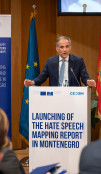Persons with disabilities still lack equal access to education, employment, and social services

This was announced at the Regional Forum on Social Inclusion of Persons with Disabilities organised by Caritas Montenegro in cooperation with the Association of Paraplegics Bar within the project Societies 2 – Support to civil society organisations in strengthening technical skills, inclusion of persons with disabilities, and EU standards in the Western Balkans.
The Forum on Social Inclusion offers an opportunity for regional actors to learn about experiences and best practices and present them in a regional context.
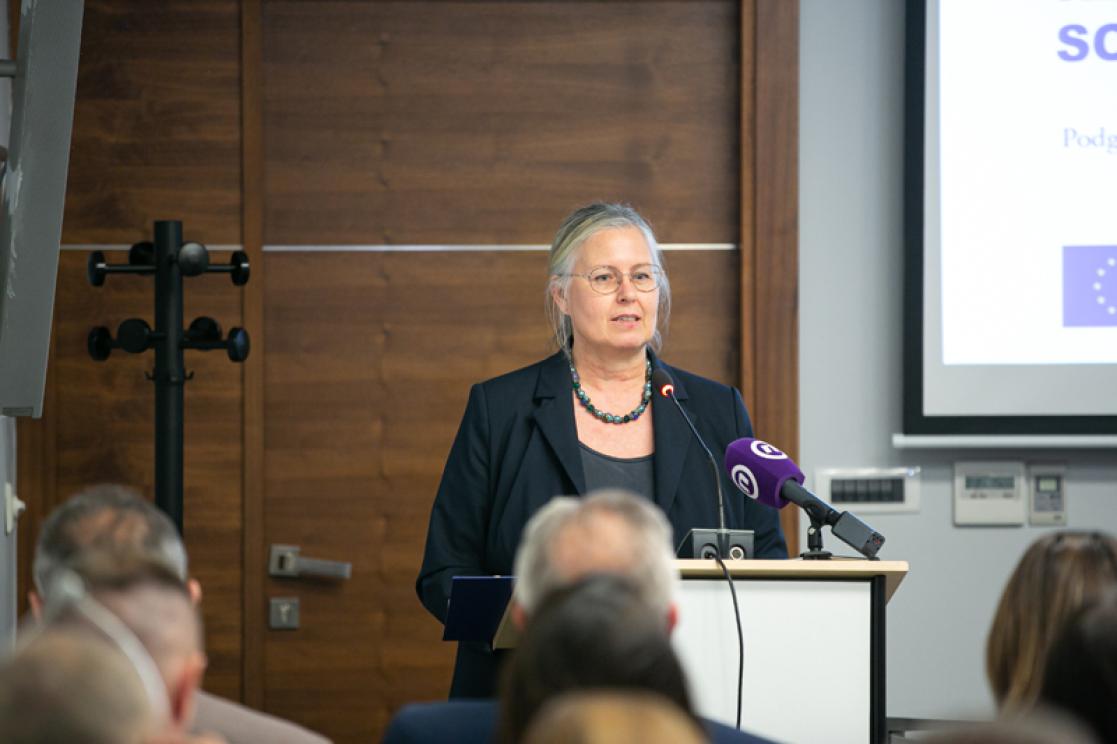
Liselotte Isaksson, representative of the Delegation of the European Union (EU) to Montenegro, emphasised the significant the CSOS plays in monitoring, promoting, and protecting the rights of persons with disabilities (PWD) and increasing their level of inclusion.
"Even though some progress has been made in recent years in promoting and protecting the rights of persons with disabilities, they still face many challenges when striving to achieve equal access in all spheres of life, especially in access to education, employment, and social services," said Liselotte.
She pointed out that it is often forgotten or insufficiently understood that all people with disabilities and impairments have different experiences, face different types of obstacles and, therefore, need different support.
"It is important that public systems assess these specificities to ensure that the right support services are available for each individual situation," Liselotte said.
According to her, civil society organisations have a key role in ensuring these issues. Liselotte noted that the EU is very committed to "leaving no one behind" and ensuring that people with disabilities have the same human rights and basic freedoms as all other people.
"In line with our strategy, we will continue to work on ensuring that persons with disabilities benefit equally from EU funding and support from partner countries so that their rights are promoted," said Liselotte.
She said that she will continue emphasising the importance of inclusion and the implementation of the UN Convention on the Rights of Persons with Disabilities in the dialogue with partner governments, together with the OCD and other relevant actors.
"As we go forward, I think we can learn a lot from each other." I am looking forward to the discussions in the next two days and I hope that you will share the results with all the EU delegations in the region," Liselotte concluded.

Edina Desic, State Secretary in the Ministry of Labor and Social Welfare, said that the topic, which is the Forum’s focus, is very important, both from the aspect of the further development of a country’s inclusive growth, and from the aspect of creating conditions for improving the position of persons with disabilities.
"In the modern process of digital and green transition, to ensure sustainability and, at the same time, inclusive economic growth, it is very important to include the poorest, as well as those who are socially excluded, especially young people, women, persons with disabilities and socially sensitive groups." It represents an imperative from the standpoint of achieving sustainable development goals, as well as from the standpoint of achieving maximum growth by using the full potential of society, in a way where no one is excluded," explained Desic.
She pointed out the importance of the UN Convention on the Rights of Persons with Disabilities (which Montenegro accepted), which obliges the signatory states to ensure and promote the full realisation of all human rights and fundamental freedoms for all persons with disabilities without any discrimination based on disability.
"The process of education, training for work, as well as the employment of persons with disabilities enables this target group to achieve the status of active members of society who independently achieve their socio-economic position, and thus actively contribute to the overall development of society," added Desic.
According to her, Montenegro has a relatively well-established legislative framework.
"The new law is being prepared, which aims to establish disability expertise and unique national criteria for determining disability. After the adoption of this law, it is necessary to completely harmonise and change other regulations targeting persons with disabilities," said Desic
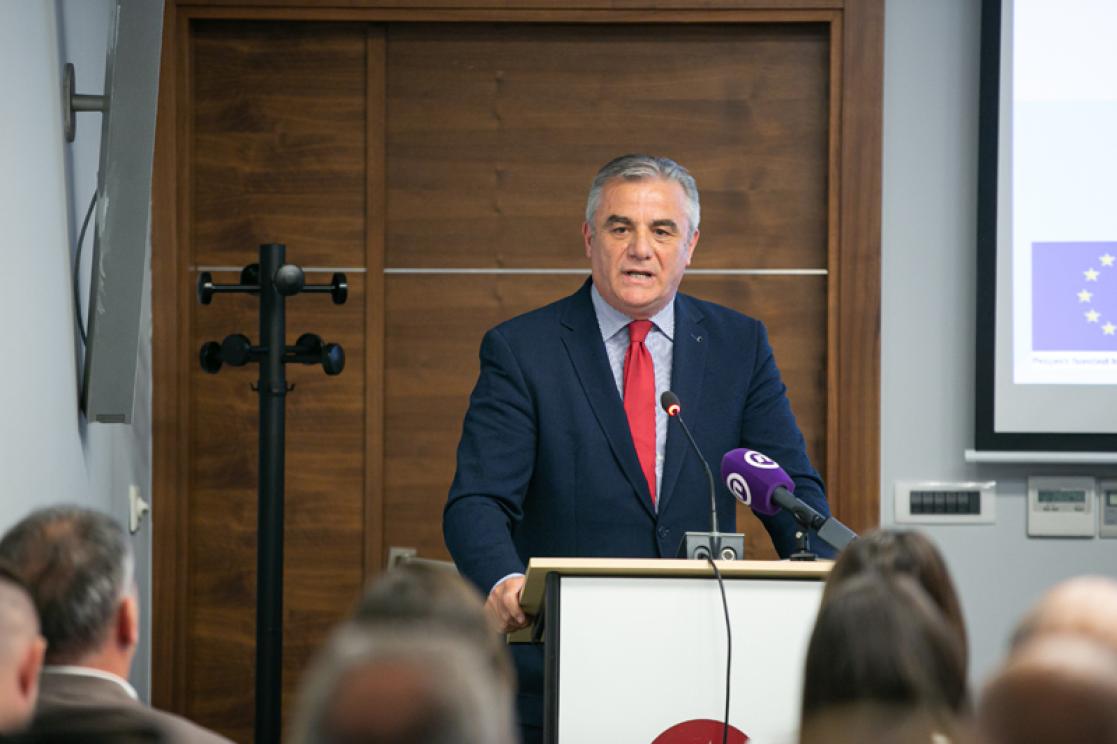
Gëzim Hajdinaga, Director of the Employment Agency of Montenegro, said that he is extremely pleased that Montenegro is the host of such gatherings.
He reminded that the Employment Agency of Montenegro started its cooperation with Caritas back in 2000.
Hajdinaga said that through various projects and organizations they are trying to open the "doors to employment for PWDs" and build such a system where everyone will be equal.
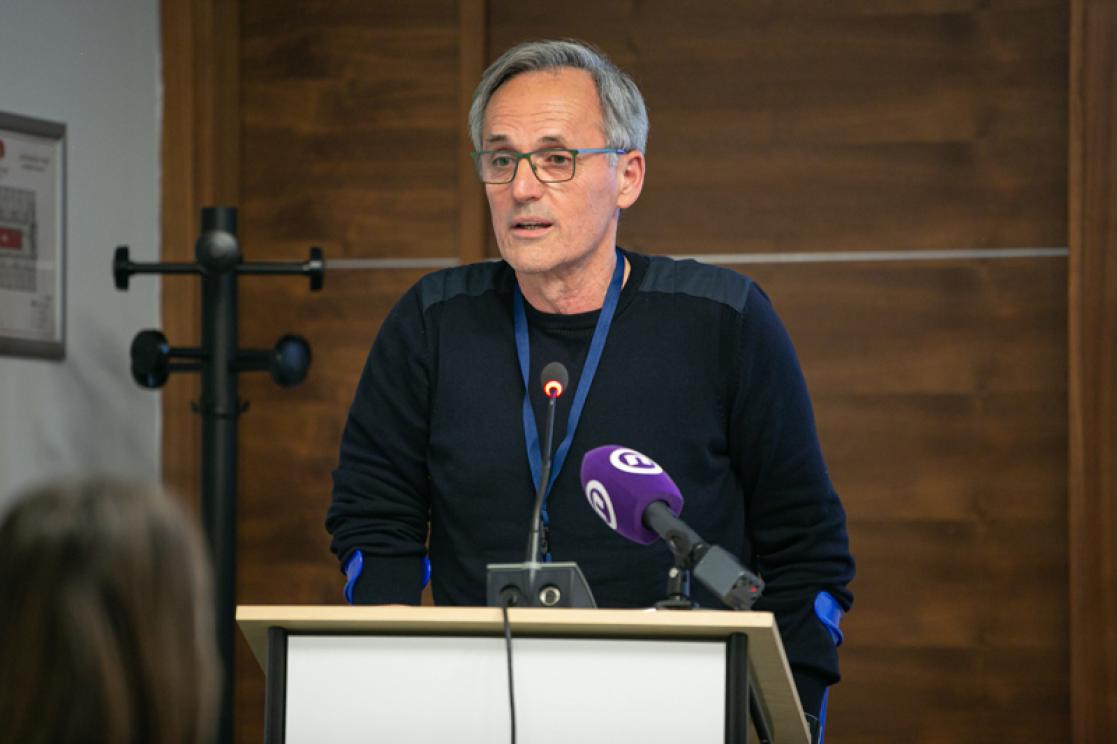
Slavko Vucicevic, President of the Bar Association of Paraplegics, who is a partner in the project, said that the Forum offers an opportunity to present best practices, and exchange knowledge and experiences in a regional context.
"The objectives of the Forum are to improve the participation of the public and the role of civil society organisations in decision-making processes, and the exchange of knowledge and experiences between civil society organisations and institutions in the practices and policies of social inclusion," noted Vucicevic.
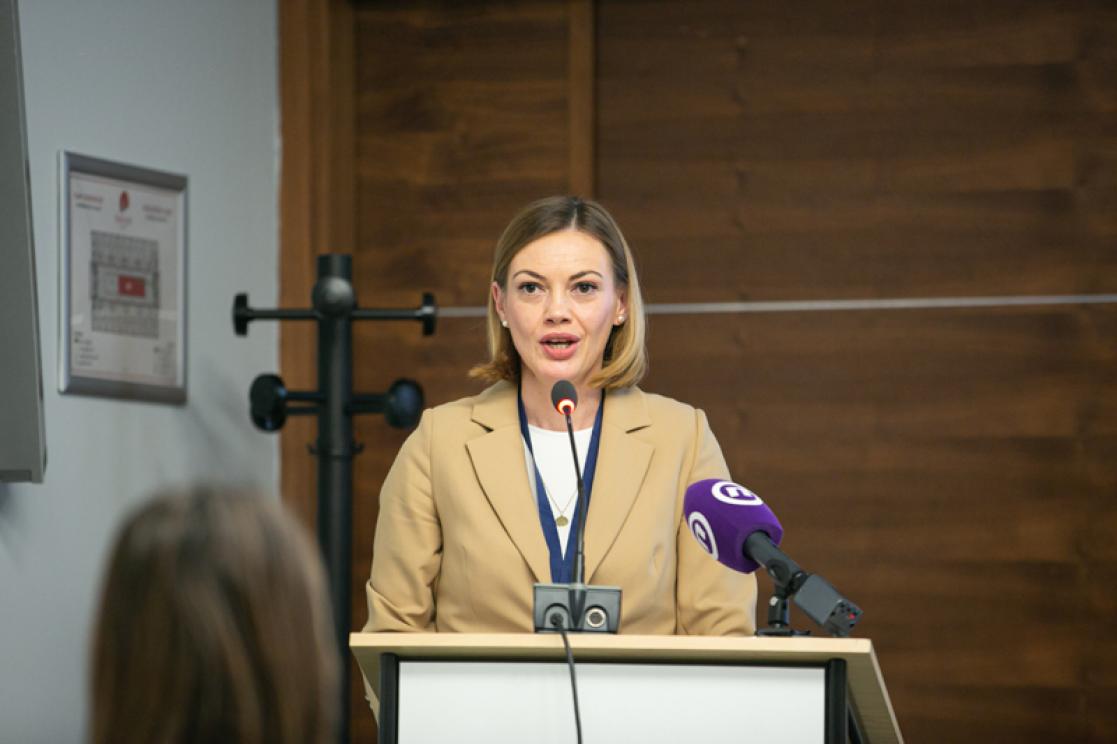
Iva Ruzic, representative of the House of People of the Parliament of the Federation of Bosnia and Herzegovina, said that in addition to her political role, she is also the mother of a girl with Down Syndrome, and that is why she is attending the Forum.
"That's why I believe that we will return from this Forum richer with new knowledge and experiences, as well as friendships," said Ruzic
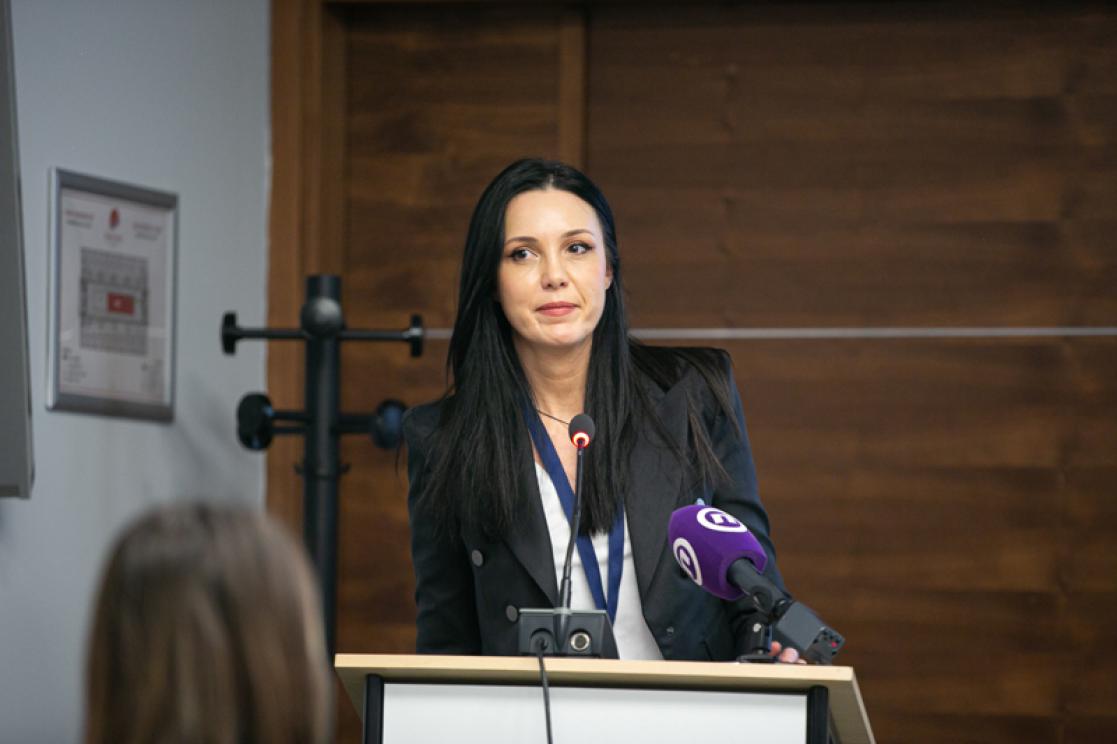
Sandra Peric, Director of the Serbian Social Protection Chamber, said that we are all born with the same dreams, but unfortunately, we are not all able to realise our dreams and desires in the same way.
"Therefore, PWDs require greater support from society, the state, and the civil sector in order to have equal treatment and rights so that the needs of PWDs can be met," said Perić.
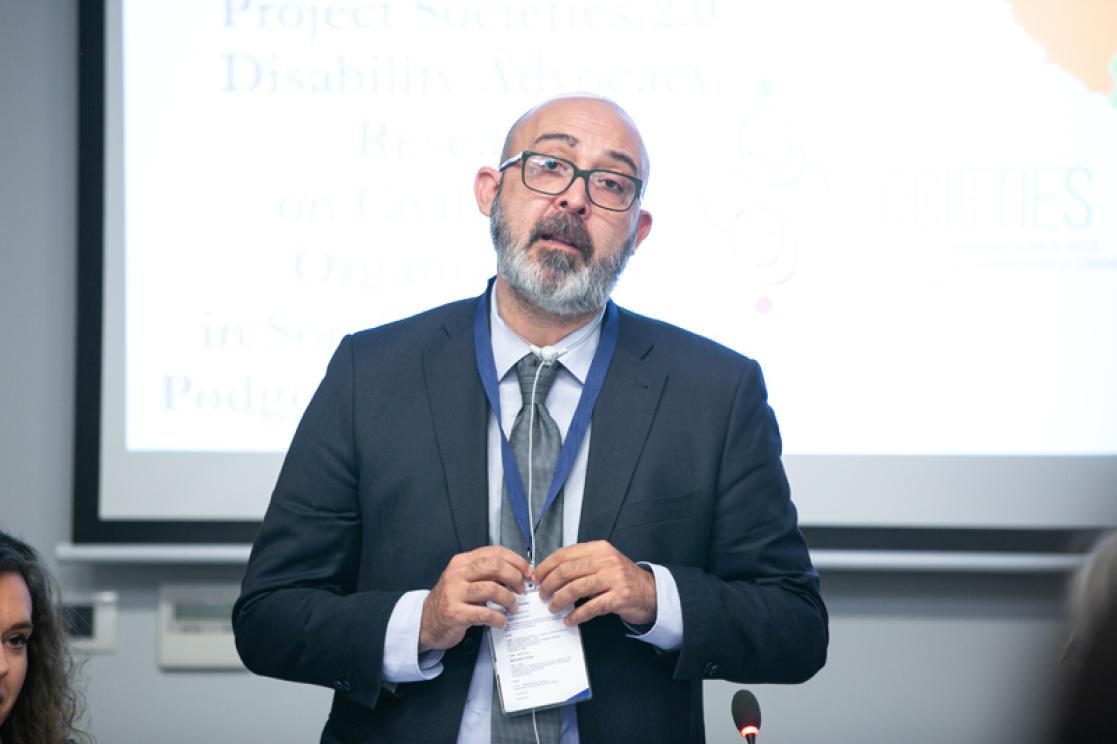
Ettore Fusaro from Caritas Italia presented the Research on Advocacy for Persons with Disabilities in Civil Society Organisations.
About 100 participants will take part in the Forum. Among them there are representatives of institutions and civil society organisations from Albania, Bosnia and Herzegovina, Kosovo, Serbia, and Montenegro.
The SOCIETIES 2 project is financed by the European Commission through the Support to Regional Thematic Networks of Civil Society Organisations.
Podgorica, PR press service




